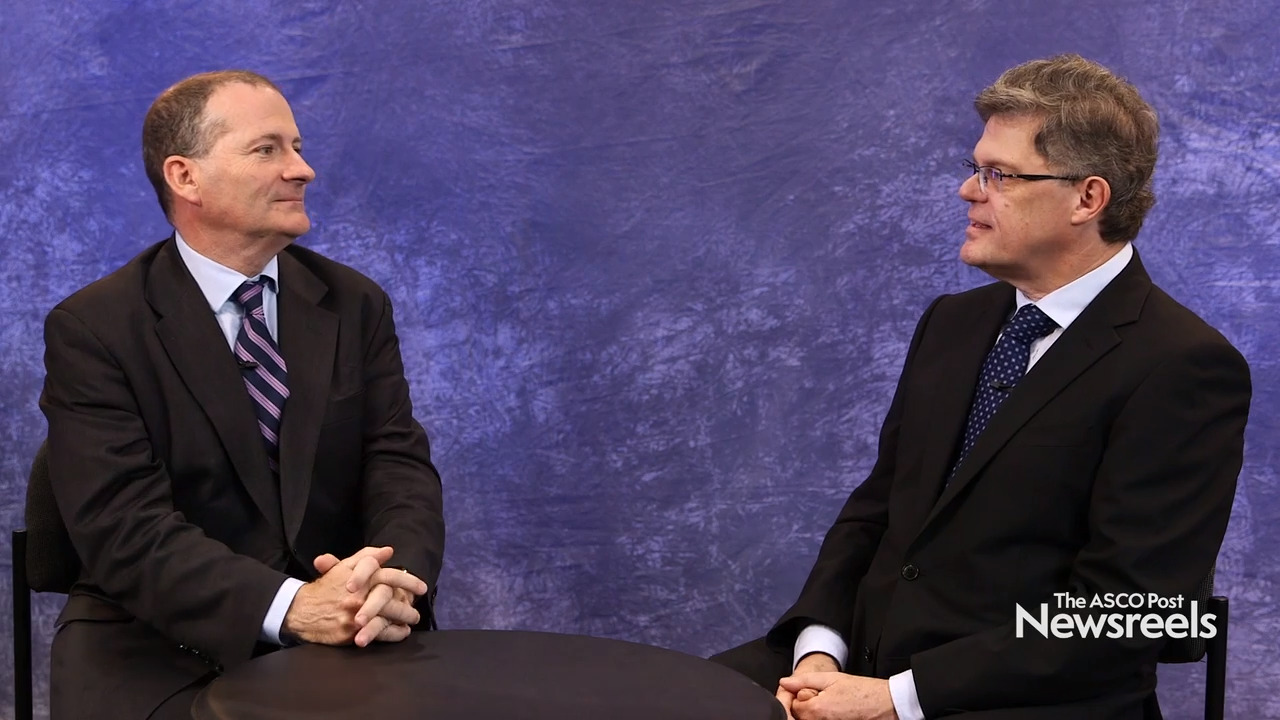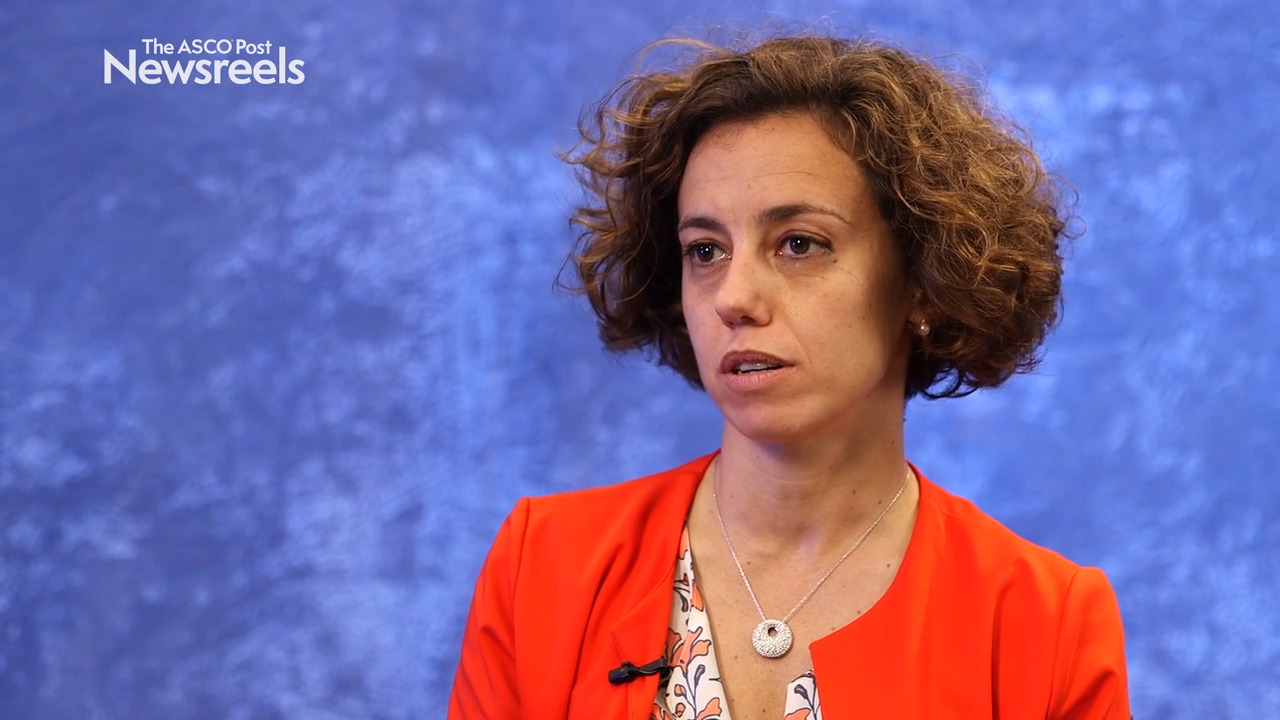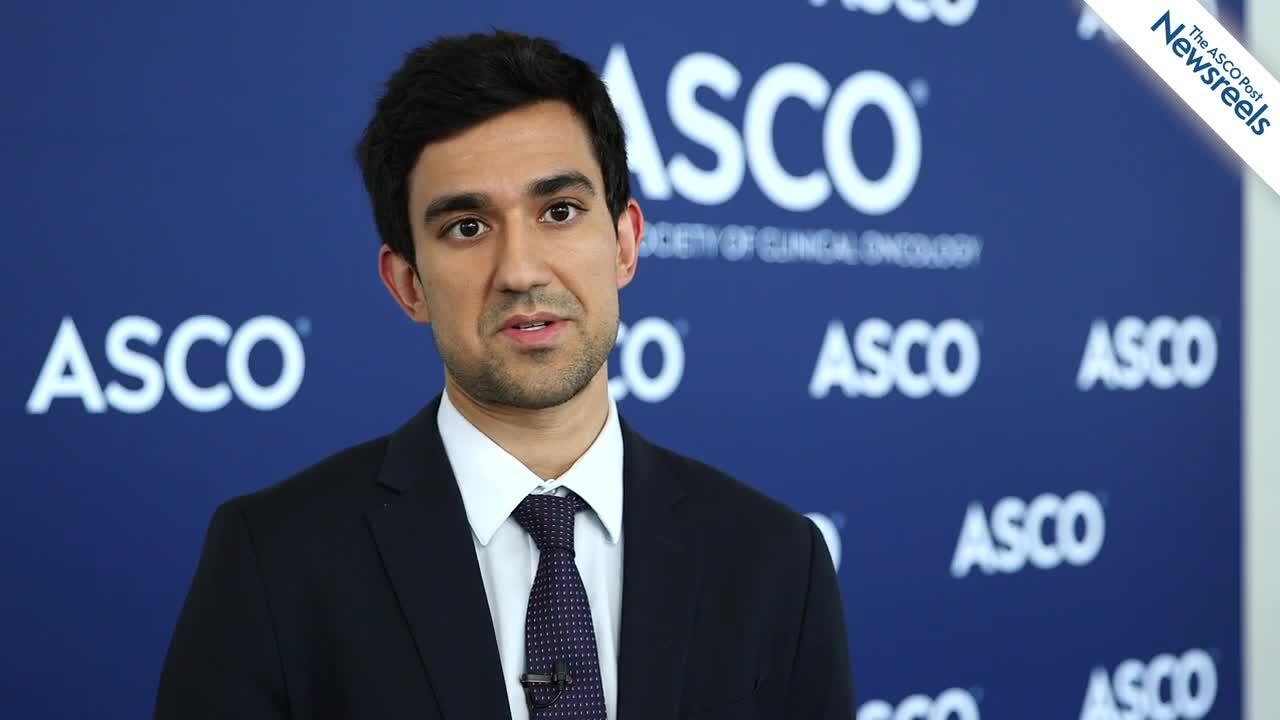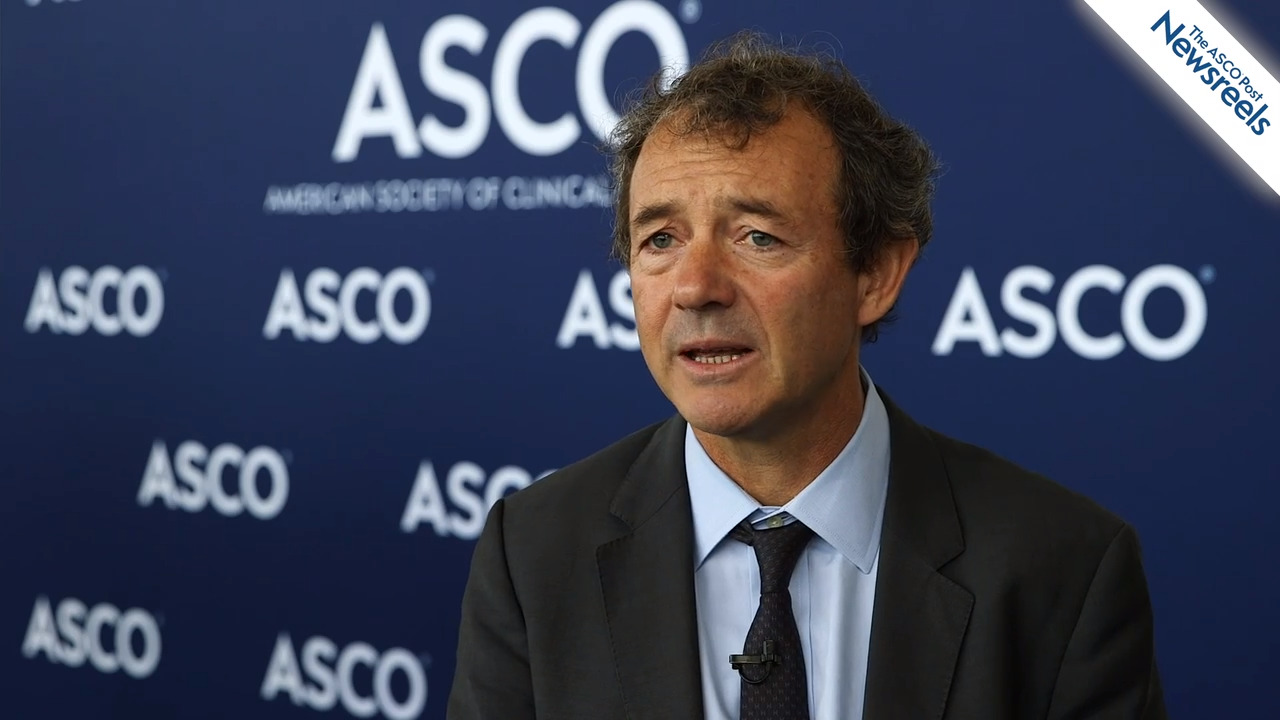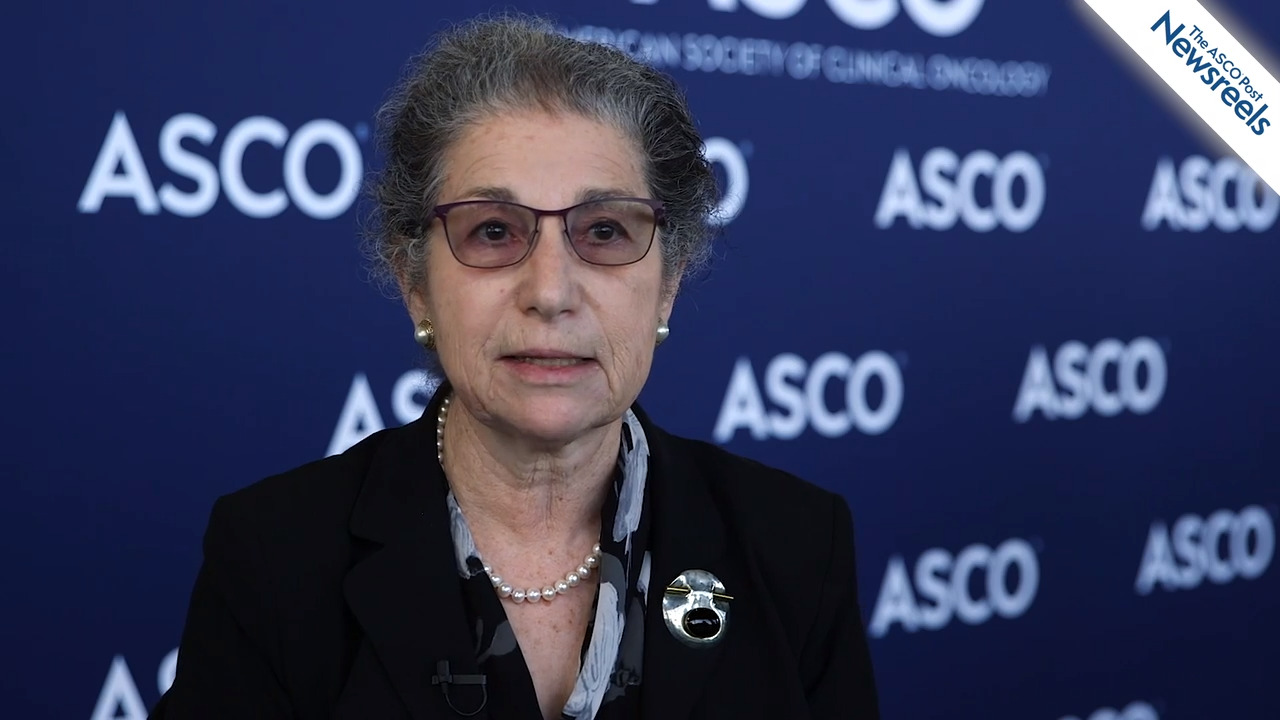Miriam Knoll, MD, and Zachery Reichert, MD, PhD, on Prostate Cancer: Focal Radiation for Oligometastatic Castration-Resistant Disease
2019 ASCO Annual Meeting
Miriam Knoll, MD, and Zachery Reichert, MD, PhD, discuss the FORCE trial, which is examining whether radiation can create a more durable response to systemic therapy, and whether using newer, more sensitive imaging technologies can improve outcomes (Abstract TPS5096).
Christopher Sweeney, MBBS, of Dana-Farber Cancer Institute, and Ian D. Davis, MBBS, PhD, of Monash University and Eastern Health, discuss the Australian and New Zealand Urogenital and Prostate Cancer Trials Group, working globally to speed clinical research in and treatment of urogenital cancers.
Francesca Gay, MD, of GIMEMA, European Myeloma Network, discusses the results of the FORTE trial on the efficacy of carfilzomib/lenalidomide/dexamethasone with or without autologous stem cell transplantation according to risk status in newly diagnosed disease (Abstract 8002).
Kamran A. Ahmed, MD, of the H. Lee Moffitt Cancer Center and Research Institute, reports on a trial in progress that is investigating whether treatment with atezolizumab plus hypofractionated radiation therapy will improve the objective response rate compared with atezolizumab alone in patients with recurrent, persistent, or metastatic cervical cancer (Abstract TPS5596).
François-Xavier Mahon, MD, PhD, of the Université Bordeaux and Institut Bergonie, discusses results of the ENESTop study, which demonstrated the long-term durability and safety of treatment-free remission in chronic-phase CML after second-line nilotinib (Abstract 7005).
Patricia A. Ganz, MD, of NRG Oncology and Jonsson Comprehensive Cancer Center at UCLA, discusses the NRG/NSABP phase III findings, which showed that partial-breast irradiation was more convenient and resulted in less fatigue but slightly poorer cosmesis at 36 months in patients who did not receive chemotherapy (Abstract 508).
